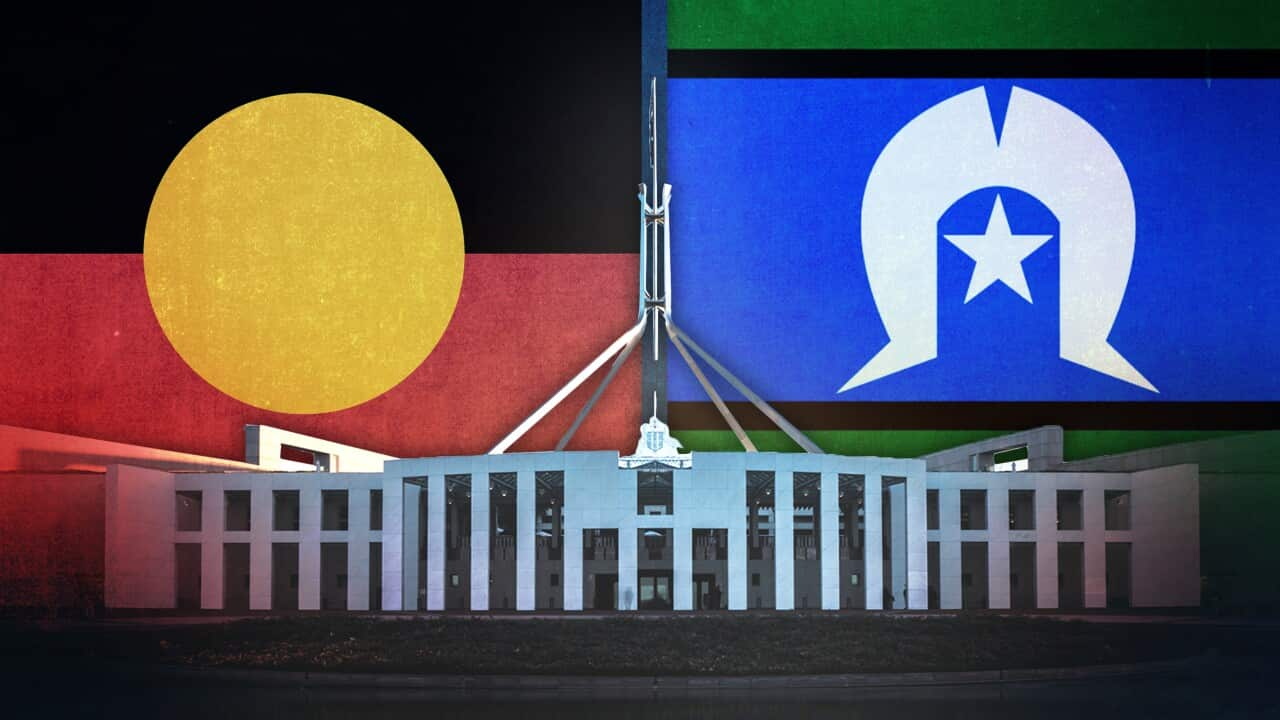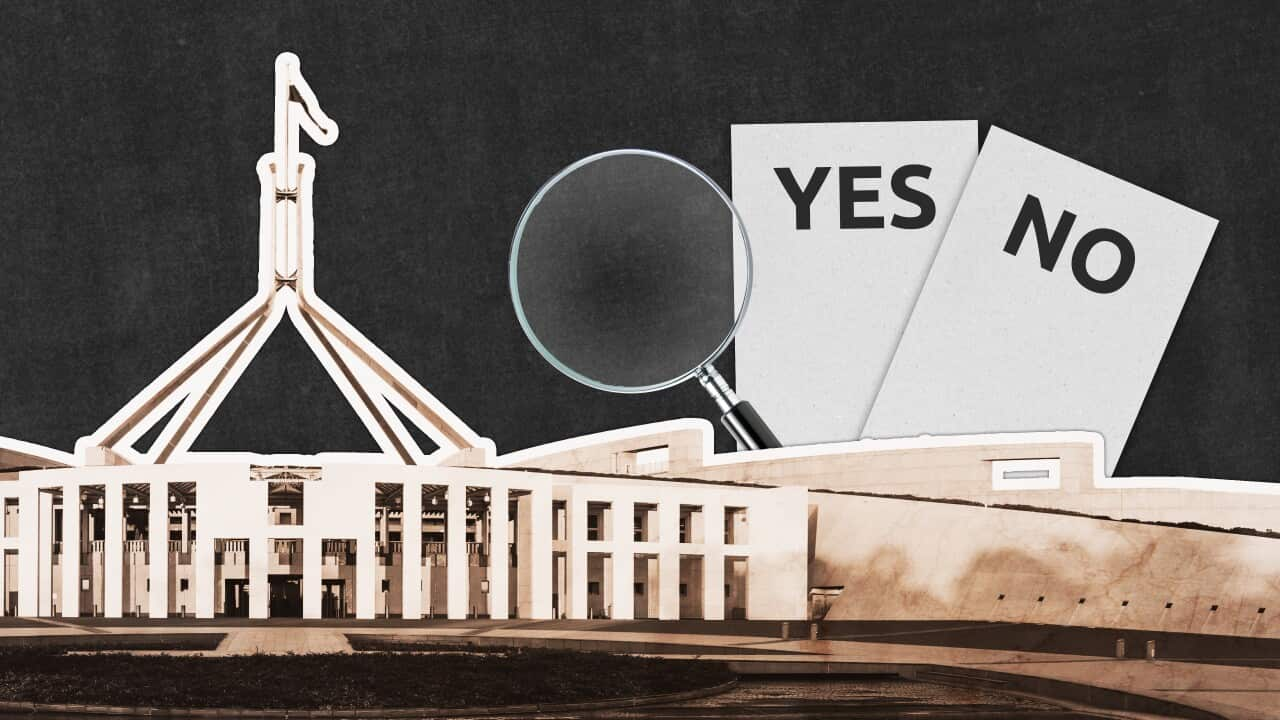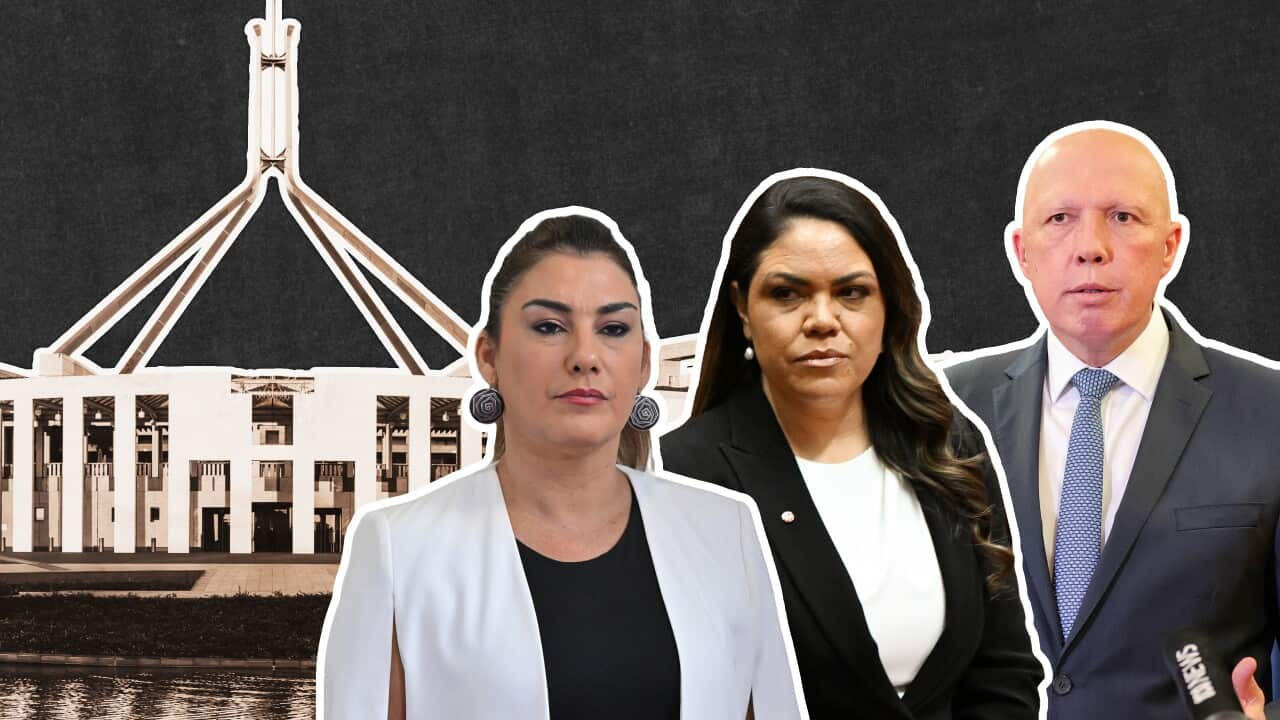Key Points
- Prime Minister Anthony Albanese has spoken at the 23rd Garma Festival.
- He said the referendum on the Indigenous Voice to Parliament would not be delayed.
- A referendum on the proposal will be held later this year.
The Indigenous Voice to Parliament was in the spotlight on day two of the Garma Festival, the first since
Prime Minister Anthony Albanese; Guugu Yimithirr man and architect, Noel Pearson; and Gumatj clan leader and Yothu Yindi Foundation chairman, Djawa Yunupingu, all spoke in support of the Voice, which .
The and is being hosted by the Yothu Yindi Foundation on Gumatj country.
Here's what they said.
Anthony Albanese
Despite , Albanese said the referendum would not be delayed.
Albanese insisted Indigenous people have been clear on their desire for a Voice, and assured attendees that Labor will "not deny the urgency of this moment" in fear of failure.
"We will not kick the can down the road. We will not abandon substance for symbolism, or retreat to platitudes at the expense of progress," Albanese said.

Prime Minister Anthony Albanese said the referendum on the Indigenous Voice to Parliament would not be delayed. Source: Getty / Tamati Smith
The Opposition insists the Voice , but supports local and regional Voices legislated by Parliament.
Albanese attacked that stance as contradictory.
"Clearly they acknowledge that a Voice is needed... clearly they don't see it as divisive or radical or any of the other noise and confusion they are seeking to inject into this referendum, otherwise why legislate it?," he said.
"The only difference that all of this confected outrage is about is whether it be enshrined in the constitution or whether, after all of this , it can be dismissed with the stroke of a pen by a future government."

Members of the Yolngu people perform a ceremonial welcome during the Garma Festival on Saturday. Source: AAP / Mick Tsikas
"An eight-year gap in life expectancy in the land of the fair go. The suicide rate twice as high. In the lucky country. Shocking rates of disease in a nation with some of the world's best healthcare. Only on track."
"Surely no leader can honestly say that is good enough."
Noel Pearson
Noel Pearson, a Guugu Yimithirr man and one of the chief architects of the , called on Australians to unite by voting Yes in the upcoming referendum when he spoke on Saturday.
"Yes will recognise Indigenous people in the constitution, but the bigger project is one of understanding who Australian people are," he said.
"What's our history, where do we come from, who we are in the present and what do we want to leave to our children?"

Noel Pearson, a Guugu Yimithirr man and one of the chief architects of the Uluru Statement from the Heart, called on Australians to unite by voting 'yes' in the upcoming referendum Source: AAP / Mick Tsikas
"Australia is going to put behind it the idea of settler versus natives when it recognises Indigenous people as Australian," he said.

Clan members of the Yolngu people from north-eastern Arnhem Land perform the Bunggul traditional dance during Garma Festival on Friday. Source: AAP / Mick Tsikas
"We're going to love them on the beaches, love them at every front door, on football pitches, every railway station, we're going to leave no stone unturned," he said.
"We're going to add a little bit of soul to our founding document.
Djawa Yunupingu
Djawa Yunupingu said Australia was "not complete" without the Voice, which he described as "gift" his brother had "sought to give" the nation.
"We stay strong with our laws and our constitutions, but our laws do not run the country," he said.
"The Australian constitution runs the country... yet Australia is not complete.
"Australia was built on an ancient foundation. Let the voice of our people be in the constitution."
He said the constitutional recognition would mean Yolngu people could be "fully engaged in the life of a nation, through the rulebook that runs Australia".
"We don't want to be sitting on the side waiting for Garma each year," he said.
- With the Australian Associated Press.
Stay informed on the 2023 Indigenous Voice to Parliament referendum from across the SBS Network, including First Nations perspectives through NITV.
Visit the to access articles, videos and podcasts in over 60 languages, or stream the latest news and analysis, docos and entertainment for free, at the .




